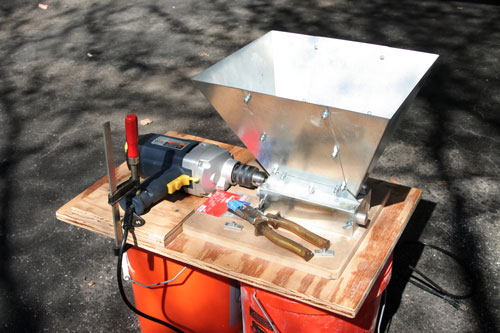Thanks for your comment day_trippr. That scale looks quite good and a fraction the price of the anvil one I contemplated.
I guess grain shelf life is very dependant on how long it takes to get to you and the storage conditions through all phases of that journey. And unfortunately my basement is not so great so I will need a good container.
HBT member
@grampamark could likely provide some insight into such things as how long barley sits in silos before the "last in last out" paradigm causes your bag to drop out on the way to a malt house - which has its own input grain storage, you can bet, so again your grain rides down until it hits the malting machines or floor.
Then the malt house will bag and warehouse your malted grain, where it'll sit until there's a wholesale buyer/distributor. Then there's transport to the distributor, waiting for a retailer order. More shipping, then finally it reaches your retailer, where unless you're buying full bags may also sit in a pipeline...
Cheers!
Yeah. I’m a grain farmer. The “fresh” malt that you pick up at the LHBS, or the Brown Truck leaves on your porch, might be as much as 2 years from harvest.
Malting barley is what is known as a “specialty crop”. That means that it isn’t corn, wheat, rice, or soybeans. Almost all of the malt barley grown in North America is grown in 5 states and 2 Canadian provinces, all of which are contiguous. Barley production, compared to corn or soy, is a rounding error, and most of it is grown in a fairly small geographic area.
The macros contract for the bulk of the production, and with their increased use of corn and/or rice, the amount of barley they buy is decreasing. Some of the independent maltsters contract with growers in their areas directly, and that production is delivered to the malting facility fairly soon after harvest. Some of it might go straight to the plant from the field. Much of the barley produced isn’t contracted. This is known as “open market” production. IOW, the grower plants barley in the spring and then shops around for the best deal after harvest. That grain might sit in storage on the farm for up to a year before it even enters the transportation/distribution chain. And, during that time, the grain is stored in facilities which are designed to promote airflow through the grain. It ain’t hermetically sealed at any point in the process. Once the grain moves into the system, the inventory control is, as
@day_trippr noted, “Last in, last out”.
Bottom line-keep your grains cool, dry, and free of bugs and rodents. It ain’t going bad in a matter of weeks or months. Unless you live near a malt plant, in an agricultural area, your “fresh” malt might be older than dirt.




